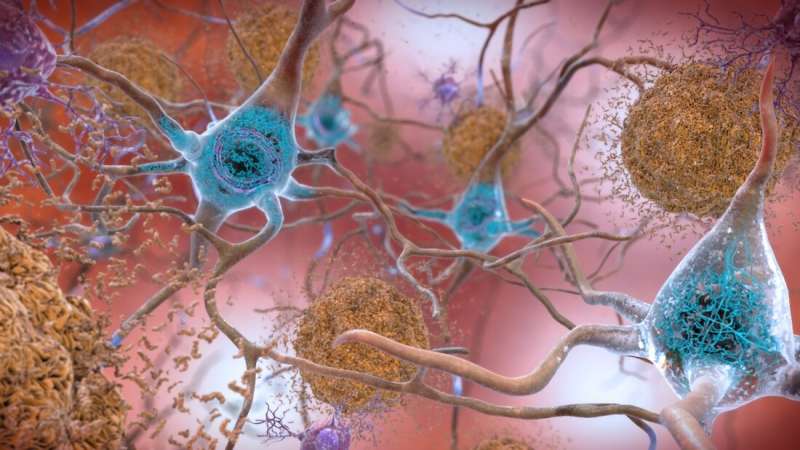
A study by UT Southwestern researchers finds that changing the biochemistry of parts of brain cells abolished the formation of amyloid beta plaques in a mouse model of Alzheimer’s disease. The finding, published in eLife, might eventually lead to treatments that prevent the memory-robbing condition in humans.
“We envision that drugs that act on the same protein we inhibited in these mice could someday play a similar role in Alzheimer’s disease as statins do in heart disease, helping to prevent the condition from ever developing,” said Joachim Herz, M.D.,…


























